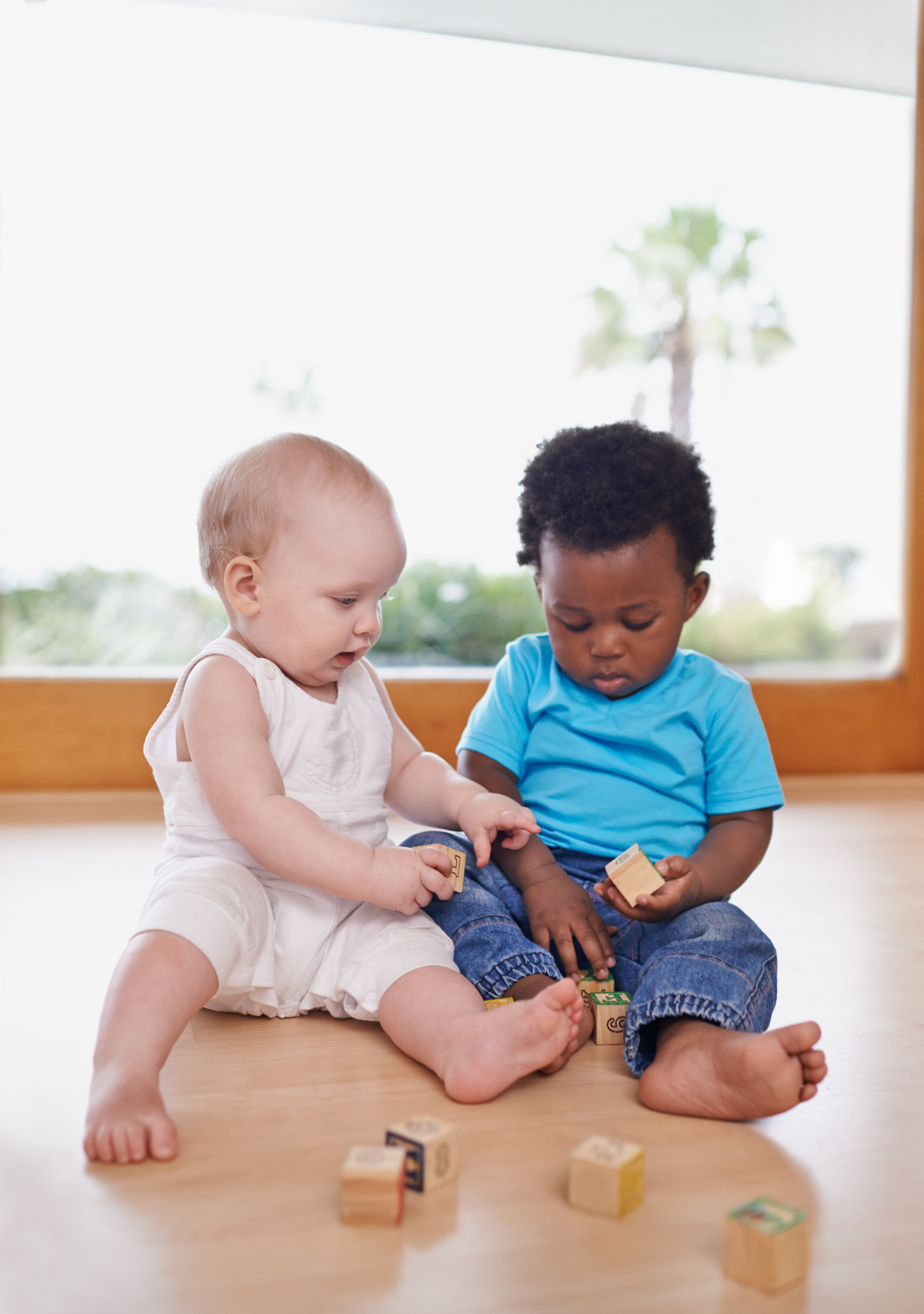 Return to Articles
Return to Articles
11.01.2025
Helping Young Children Make Friends: Tips to Help Kids Build Relationships

By Luciana Watson, Community Navigator and EFMP Specialist, The Children’s Cabinet
Friendships play such an important role in a young child’s growth. From toddlers to preschoolers, learning how to connect with others helps children build essential social and emotional skills like empathy, communication, and problem-solving.
Why Friendships Matter
Having friends helps kids feel like they belong. Playing with others can teach sharing, how to wait your turn and problem-solving skills that will help in school and in life.
How Parents Can Help
Children learn by watching adults. When we are kind and talk nicely, kids will learn to do the same.
Some ways you can help:
- Invite other kids to play
- Visit local parks or playgroups
- Play games that involve taking turns, sharing, or building something together.
Talk to kids about how they feel. Helping them name their feelings and asking how others might feel teaches empathy. When issues happen, talk your child through the problem by asking them to tell you how they feel. Ask how they would fix the problem instead of jumping in to fix it for them. This teaches them how to solve problems on their own.
Notice and praise acts of kindness. Say things like “That was nice of you to share!” teaches them to keep practicing good behavior.
When Things Are Hard
It’s completely normal for kids to struggle with sharing or have big feelings. These moments are ways to teach problem-solving, empathy, and patience, skills that help form lasting friendships.
Books to Encourage Friendship
Reading together is a great way to learn about kindness and being a good friend. Here are some books that can help:
- Stick and Stone by Beth Ferry – Shows how friendship and kindness can make a big difference, even between unlikely friends.
- A Sick Day for Amos McGee by Philip C. Stead Teaches about caring for friends and thinking of others’ needs.
- Little Blue Truck by Alice Schertle – Teaches teamwork and helping others.
- Otis and the Puppy by Loren Long – A story about welcoming new friends and thinking about others.
- Olivia: A Guide to Being a Friend by Ian Falconer – Tips for sharing and listening to your friends.
Why It Matters
Friendships help kids with social and emotional growth and give them chances to play and talk about kindness. Teaching them how to be a friend can lead to friendships that last.






